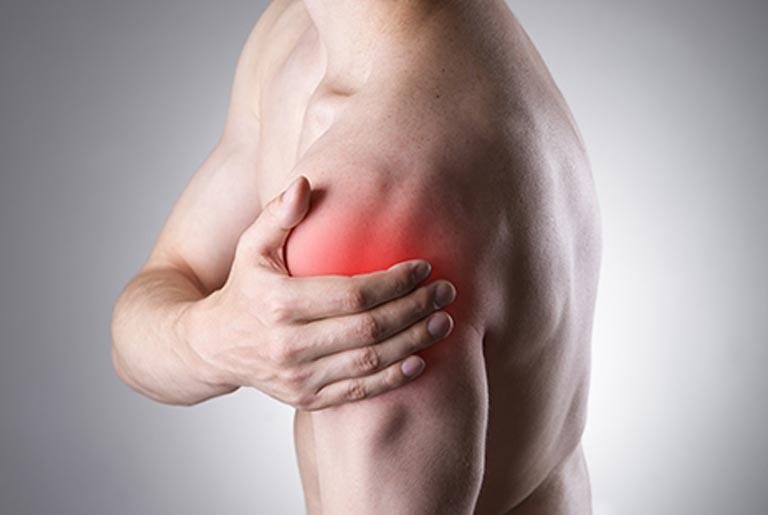Muscle stiffness, often accompanied by discomfort or limited range of motion, is a common issue that can affect individuals of all ages and activity levels. Whether it's due to overuse, injury, or an underlying medical condition, understanding the causes and pursuing appropriate treatment are essential for alleviating symptoms and restoring optimal muscle function. In this comprehensive guide, we'll explore the various causes of muscle stiffness and outline effective treatment options to help individuals find relief and improve their overall well-being.
Pain O Soma 500mg that presents itself as a potential solution to treat the pain related to nerve. However, important questions surround the effectiveness and safety of the medication. Pain O Soma among others, is a medication historically used as a muscle relaxant to relieve pain associated with conditions like muscle strains and spasms.
Understanding Muscle Stiffness
What Causes Muscle Stiffness?
Muscle stiffness can arise from several factors, including:
- Overuse or Fatigue: Engaging in repetitive activities or prolonged periods of physical exertion can lead to muscle fatigue and stiffness.
- Injury or Trauma: Acute injuries such as strains, sprains, or contusions can cause inflammation and stiffness in the affected muscles.
- Poor Posture: Maintaining improper posture during activities or sitting for extended periods can lead to muscle imbalances and stiffness.
- Muscle Tension: Chronic stress, anxiety, or emotional tension can manifest as muscle tension and stiffness, particularly in the neck, shoulders, and upper back.
- Underlying Medical Conditions: Conditions such as fibromyalgia, myofascial pain syndrome, or inflammatory disorders can contribute to widespread muscle stiffness and discomfort.
-
Prosoma 500mg is a muscle relaxant used to treat musculoskeletal pain and discomfort. Carisoprodol active ingredient in prosoma acts by altering neuronal transmission in the central nervous system, resulting in muscle relaxation and pain alleviation.
Common Symptoms of Muscle Stiffness
Symptoms of muscle stiffness may vary depending on the underlying cause and severity of the condition. Common symptoms include:
- Limited Range of Motion: Difficulty moving the affected muscles or joints fully due to stiffness or tightness.
- Discomfort or Pain: Dull, aching pain or discomfort in the affected muscles, particularly noticeable with movement or palpation.
- Fatigue or Weakness: Feelings of tiredness or weakness in the affected muscles, especially after prolonged use or activity.
- Difficulty Relaxing Muscles: Inability to fully relax or release tension in the muscles, leading to persistent stiffness and discomfort.
-
Tapaday 200mg is used to treat moderate to severe pain associated with colds, flu, toothaches, period discomfort, and headaches. Tapaday 200 is utilized for temporary pain. It works by attaching to certain receptors in the brain and spinal cord, which makes the body feel less pain.
Treatment Options for Muscle Stiffness
Rest and Activity Modification
Resting the affected muscles and avoiding activities that exacerbate stiffness or discomfort is essential for promoting healing and reducing inflammation. Activity modification may involve adjusting your posture, workspace ergonomics, or exercise routine to prevent overuse and further injury.
Gentle Stretching and Range-of-Motion Exercises
Incorporating gentle stretching and range-of-motion exercises into your daily routine can help alleviate muscle stiffness, improve flexibility, and promote relaxation. Focus on stretching the affected muscles gradually, holding each stretch for 15-30 seconds without bouncing or forcing the movement.
Heat Therapy
Applying heat therapy to the affected muscles can help increase blood flow, relax tense muscles, and reduce stiffness. Use a heating pad, warm compress, or soak in a warm bath for 15-20 minutes at a time to alleviate discomfort and promote muscle relaxation.
Massage Therapy
Massage therapy can provide relief for muscle stiffness by promoting circulation, reducing tension, and improving muscle flexibility. Techniques such as Swedish massage, deep tissue massage, or myofascial release can help release tight knots or trigger points and improve overall muscle function.
Over-the-Counter Pain Relievers
Nonsteroidal anti-inflammatory drugs (NSAIDs) such as ibuprofen or naproxen can help alleviate pain and reduce inflammation associated with muscle stiffness. However, it's essential to follow the recommended dosage instructions and consult with a healthcare professional, especially if you have underlying medical conditions or are taking other medications.
Hydration and Nutrition
Staying hydrated and maintaining proper nutrition can support muscle health and reduce stiffness. Drink plenty of water throughout the day to stay hydrated and consume a balanced diet rich in vitamins, minerals, and antioxidants to support muscle recovery and reduce inflammation.
Physical Therapy
Working with a physical therapist can be beneficial for individuals with chronic or severe muscle stiffness. A physical therapist can develop a customized treatment plan tailored to your specific needs, incorporating therapeutic exercises, manual therapy techniques, and modalities to improve muscle flexibility, strength, and function.
Stress Management Techniques
Stress and tension can exacerbate muscle stiffness and discomfort. Practicing relaxation techniques such as deep breathing, meditation, progressive muscle relaxation, or yoga can help reduce stress levels, promote relaxation, and alleviate muscle tension.
Conclusion
Muscle stiffness is a common issue that can affect individuals of all ages and activity levels. By understanding the underlying causes of muscle stiffness and pursuing appropriate treatment options, individuals can find relief and improve their overall well-being. Whether through rest and activity modification, gentle stretching and exercise, heat therapy, massage therapy, pain relievers, hydration and nutrition, physical therapy, or stress management techniques, there are numerous options available for managing muscle stiffness and restoring optimal muscle function.



